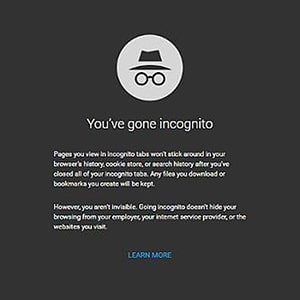Prying eyes is a category that describes anybody snooping around or eavesdropping on what you want to keep private. When dealing with online matters which involve the internet, many prying eyes are after your data. The most common ones are your ISP, the government, marketing agencies, cybercriminals and anybody interested in your internet traffic.
There are two levels of browsing history; the local level – the one that your browser logs and the internet level, this pertains the digital footprints you leave online or what prying eyes on the internet can see.
Why prying eyes are interested in your data/browser history
ISPs are responsible for providing you access to the open internet. In doing so, they can see, track and even monitor what we are doing online. While they are at it, they can make profits, reduce costs and even help other agencies.

Through tracking, ISPs collect the primary data needed to construct our browsing behavior and preferences. With this information, they can partner with marketing agencies to make a profit or even sell the data to other third parties. Also, advertisement agencies use cookies to gather this information. This is the sole reason why you might end up seeing the same adverts across all your devices. What’s harmful is that some of the ads maybe intrusive and retargeted.

Through monitoring, ISPs can know what services you like most. To make more profit, they may throttle the service’s bandwidth and present you with another subscription package. Other times, throttling is done to eliminate competition, for instance, an ISP may offer streaming services, but mostly you like watching Netflix instead. To avoid the competition, they may throttle Netflix, and this might force you to use their service.
Monitoring copyright infringement
Copyright enforcement agencies mostly use ISPs to ensure nobody is infringing copyrights through filesharing services such as torrenting. When torrenting, your IP address is visible, and your ISP will be able to pinpoint you. What follows next is a copyright infringement notice which can be later accompanied by huge fines.
Government surveillance
Governments are always monitoring some persons of interest and the entire population in general. Surveillance can be useful when getting rid of crimes and terrorist acts. But it’s wrong if you are being surveilled for no reason.
Cybercriminals
Cybercriminals also monitor your internet traffic and even track you. Their sole purpose, to propagate malicious activities such as blackmail, identity fraud, and even drop malware to your device.
Why you should protect your browsing history
Protecting your browsing history will eliminate the above harmful practices, keep threats at bay and also ensure your digital freedom and online privacy is intact.
 How to keep your browser history hidden
How to keep your browser history hidden
Local history, the one logged by your browser is easy to deal with. The easiest way is to switch to incognito browsing (private Mode). This mode will erase your browsing history, delete cookies and even prevent tracking. But it won’t protect you against online prying eyes because prying eyes like your ISP can still know what you did online. The following can;
 Use a Virtual Private Network, IPBurger VPN
Use a Virtual Private Network, IPBurger VPN
IPBurger VPN creates a secure tunnel using end to end encryptions when you access the internet. This secure tunnel ensures your browsing history and all online activities are hidden from your ISP, marketing agencies, copyright enforcers, the government, cybercriminals and anybody interested in your internet traffic.
The encryptions used by IPBurger renders your internet traffic unreadable. Unless prying eyes have access to decryption keys, of which they don’t, they won’t know what you are up to. Also, IPBurger assigns you a virtual IP address that will thwart any tracking and monitoring systems.

 How to keep your browser history hidden
How to keep your browser history hidden Use a Virtual Private Network, IPBurger VPN
Use a Virtual Private Network, IPBurger VPN

